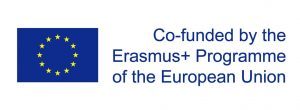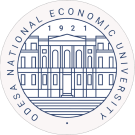 |
Project title | INTEGRATING DUAL HIGHER EDUCATION IN MOLDOVA AND UKRAINE – COOPERA
Erasmus+ Programme 2014-2020 KA2 – Cooperation for innovation and the exchange of good practices CBHE-Capacity Building in the field of Higher Education |
 |
Reference number | 617490-EPP-1-2020-1-MD-EPPKA2-CBHE-SP |
 |
Implementation period | 15 January 2021 – 14 January 2024 |
| |
Budget | 967 200,00 Euro |
COOPERA Facebook.UA


СOOPERA PROJECT SUMMARY
The current social environment and high youth unemployment afflicting Europe, has led European policy to favor education seeking to promote the employability of young people. The crisis and the effect it has on the high unemployment rates, especially among the youth, has led some countries to give great importance to dual education at all educational levels and to speed up policies and reforms for the development of this system of education.
The key feature of Dual (cooperative and work-integrated) Higher Education (DHE) is the unique combination of theory and practice. The university’s curriculum combines higher education and on-the-job training at numerous partner companies, aiming to provide both academic skills and work-related expertise. In that regard, the academic content conveyed in classroom is complemented with workplace experience, so that real-life situations immediately test the effectiveness of classroom theory and vice versa.
The project aim is to integrate Dual Higher Education (DHE) in the Partner countries in general, and to improve individual employability and development, increase suitability and continuity between the demands of the professional world and the initial training of university students, and achieve of greater economic efficiency and social integration, in particular.
GENERAL OBJECTIVE
Integrating DHE in the Partner countries in general, and to improve individual employability and development, increase suitability and continuity between the demands of the professional world and the initial training of university students, and achieve of greater economic efficiency and social integration, in particular.
SPECIFIC OBJECTIVES
OB1: To identify needs and specific requirements of companies in different industrial sectors and businesses for DHE and to find companies willing to participate in pilot implementations of DHE during the project;
OB2: To develop a flexible and generic DHEM to support different needs and interests of employers, HEIs and students in different industrial and business sectors and to provide recommendations to HEIs for implementation of DHE;
OB3: To test the specific DHE models generated from the developed generic DHEM, by realizing their pilot implementations during the project and to analyze achieved results;
OB4: To propose changes to legislation/regulations to adapt DHE in the Partner countries.
PROJECT PARTNERS
- Academy of Economic Studies of Moldova
- Technical University of Moldova
- Free International University of Moldova
- Ministry of Education, Culture and Research of the Republic of Moldova
- Uzhhorod National University, Ukraine
- KROK University, Ukraine
- V.N. Karazin Kharkiv National University, Ukraine
- Odessa National University of Economics, Ukraine
- Ministry of Education and Science of Ukraine
- Duale Hochschule Baden-Wurttemberg, Germany
- University of Lleida, Spain
- Varna University of Management, Bulgaria
- Akademia WSB, Poland
- European Policy Development and Research Institute of Maribor, Slovenia
CONTACTS OF THE INSTITUTIONAL COORDINATOR:
Kovalev Anatoly, Doctor of Economics, Professor, Rector.
In the framework of the project Integration of Dual Higher Education in Moldova and Ukraine – COOPERA, implemented within the Erasmus + Program 2014-2020 during repeated discussions of project participants, consideration of their proposals with university management and business representatives of the region were selected specialties (areas of training) of the first (bachelor) level of higher education as a pilot for the implementation of this project. Students from the chosen specialties will have an opportunity to join TRAINING IN THE DUAL FORM.
The priorities include:
072 “Finance, Banking and Insurance”
076 “Entrepreneurship, Trade and Exchange Activities”
A number of meetings were held at the University, during which the peculiarities of students’ training in a dual form of higher education were discussed. Among the issues on the agenda:
- opportunities of introducing a dual form of higher education in ONEU for students who have expressed a personal desire, as well as passed the selection of employers;
- the aim and objectives of students’ training in dual form;
- advantages of dual education for the University, business entities and candidates.
Within the framework of the project Integration of Dual Higher Education in Moldova and Ukraine – COOPERA, implemented within the Erasmus + Program 2014-2020, 10 business representatives were selected from enterprenuer entities of Odessa region for further questionnaires on their readiness to join the pilot project of dual higher education at Odessa National Economic University.
The participants of the project survey included:
in the direction Entrepreneurship:
- Odessa Cable Plant PJSC “Odeskabel”
- LLC TD Telekart-Prom
- Cement LLC
- LLC “Telecommunication Technologies”
- Agricultural company JSC “Eureka”
in the direction Banking:
- JSC “Bank Vostok”
- UkrSibBank BNP PARIBAS GROUP
- JSC OTP Bank (Southern Regional Directorate)
- Oschadbank JSC
- JSC “Pivedenny Bank”
During the working meeting held on 07.07.2021, the vectors of work on the model of dual higher education at Odessa National Economic University were determined. The participants of the meeting discussed:
- the procedure for selecting students by employers;
- the educational process organization’s features in terms of dual form of higher education, the duration of practical training, the work time distribution in an internship;
- financial aspects of combining university studies with workplace training;
- other issues which provoke discussion from the standpoint of the dual education program’s concept.
The results of the discussion are planned to be presented and considered during a joint event with business representatives and students in September 2021.

